Closing The Mental Health Care Gap For Primary School Children in the Himalayas
By
1. Michael Matergia, MD – Chief Executive Officer, Broadleaf Health & Education Alliance
2. Emma O’Brian – Research Communications Coordinator, DLR Prerna
Expanding access to children’s mental health care is a critically important global health challenge. Of the 20% of children who suffer from a mental health condition 80-90% will remain undiagnosed, unsupported and will be adversely affected their entire lives. Despite prevalence rates in India estimated to be on the high end of the global burden of childhood mental illness, less than 1% of Indian children and adolescents with mental health struggles are receiving treatment (1). A fundamental underlying cause of this care gap is insufficient mental health professionals and innovative care models are urgently needed to address this challenge.
Tealeaf: Mansik Swastha trains teachers to deliver evidence-based mental healthcare to students in the classroom and engages parents and community care-givers in supporting their child’s mental wellbeing. Working in remote and rural villages of the mountainous Darjeeling District of West Bengal, India this research takes a new step in implementing combined models of education and mental healthcare that leverage existing human resources and synergies between the fields of education and child psychiatry to improve the lives of children under 10. Alongside the program, it incorporates a three year research trial designed to test the efficacy of the intervention.
The intervention and research are co-funded by The University of North Carolina (UNC) and the Mariwala Health Initiative, Mumbai (MHI). This international collaborative research works in partnership with Broadleaf Health and Education Alliance (Broadleaf), the Center for Global Health at the Colorado School of Public Health and Darjeeling Ladenla Road Prerna (DLR Prerna).
School Based Mental Health Programs in LMICs
India, like many other low- and middle-income countries, has seen rapid growth in the number of Low Cost Private Schools over the last two decades. Due to the poor geographical reach and familial dissatisfaction with the quality of government schools, an increasing number of children in rural areas attend these private schools. As children spend more time in school than in any other formal institutional structure, schools play a key role in cognitive, emotional and behavioral development of children. The school environment and the relationships formed therein have profound effects on the health and wellbeing of children.
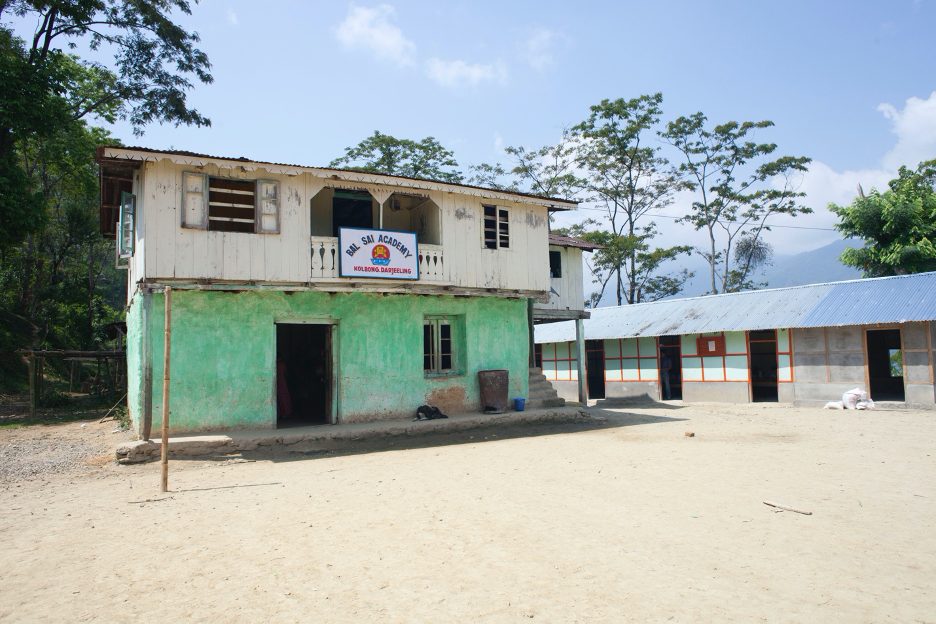
Low cost private school in the Darjeeling Himalayas
Professionals in educational settings can play a critical role in children’s mental health as they may be in the best position to note changes in behavior, including emerging mental health issues. However, knowledge about mental health must also be promoted among parents and family members. While this intervention focuses on teachers as agents of change within the community, it takes into account the need for care-giver involvement to form a supportive ecosystem for children.
Evolution of the Intervention
Tealeaf evolved out a broader school health promotion intervention in which we sought to incorporate aspects of mental health promotion and care. As teachers gained knowledge and skills in mental health, we recognized that they had the capacity to deliver more complex care.
In 2017, we prototyped and field tested the resulting intervention. Adapting tools used by mental health care professionals, primary school teachers were trained in basic functional behavioral analysis and Cognitive Behavior Play Therapy. From this initial testing we learned that:
- Within rural communities of the Darjeeling Himalayas, there is a strong existing desire to support children with atypical behaviors.
- The intervention was appropriately leveled for use by existing community members with no prior mental health training or experience.
- The development of a therapeutic relationship between the child and an empowered adult is the key component of the intervention.
- Coaching, supervision, and case review were crucial to achieving high-quality implementation of the intervention.
Based on these results, we were able to secure external funding from the American Academy of Child & Adolescent Psychiatry (AACAP) to conduct a feasibility trial. This feasibility trial involved training 22 teachers from 5 low cost private schools and demonstrated that following a 10-day training and with regular supervision, teachers could:
- Successfully identify children with mental health challenges.
- Develop appropriate care plans that include the teacher, the child and the primary caregiver.
- Implement these plans and provide targeted support to children in need of mental health care.
Children receiving targeted support in the pilot phase demonstrated significant and substantial improvement in their overall mental health status.
A Partnership Based Approach
The intervention is an exciting example of what North-South, Research-Practice and University-Community Based Organization collaboration can look like when all stakeholders are involved at an early stage. From a community based need identified by DLR Prerna, leveraging institutional relationships with Broadleaf, PI Dr. Christina Cruz of the University of North Carolina developed the intervention in partnership with the DLR Prerna team. Dr. Cruz designed the initial research protocol which was reviewed by a Darjeeling based Ethics Committee and the Indian funding agency, Mariwala Health Initiative and further discussions led to some modifications to the study design, and the addition of new qualitative components of the research. Investment in these early planning discussions and the relationships between the various stakeholders was crucial to the development of a high-quality intervention and research design.
Combining Implementation with Research
The current phase of development includes a stepped-wedge cluster randomized control trial (cRCT) that scales up the intervention to fifty rural primary schools and 150 teachers. School clusters will be randomized to receive either the full Tealeaf intervention or an Enhanced Usual Care (EUC) intervention. Schools selected to receive an EUC intervention will then move sequentially into Tealeaf so that all teachers receive the full training by the end of the study period.
As a mental health program, Tealeaf-Mansik Swastha aims to
- Improve access to evidence-based mental health care for children.
- Improve children’s mental health outcomes.
- Improve children’s wellbeing, development, and academic functioning.
Through this intervention teachers are empowered to incorporate simple, easy-to-use, evidence-based mental health techniques in their everyday interaction with targeted students. Children receiving the Tealeaf intervention will receive one-on-one support from the teacher, within the classroom setting. In this ecologically driven model, children are the recipients of mental health care and therapeutic interactions throughout their day in their own environment, setting them up for the best possible access and success. This constitutes a significant increase in frequency of therapy and practicing of skills by the child compared to typical models where, at best, children are in individual therapy once weekly.
A quantitative approach will be utilized to assess the primary outcome (mental health status) and important secondary outcomes (daily functioning and academic performance). The qualitative aspect of our mixed methods research will conceptualize and frame the intervention within the local context.
Conclusion
Expanding access to child mental health care through teacher-led delivery is a highly innovative approach. We anticipate that the learning arising from our research will have broad applicability in resource-limited settings. If successfully, this work may generate an evidence-based model for delivering mental healthcare at scale in LMICs. Ultimately, completion of this study will contribute to efforts to develop innovative care models to decrease the child mental health care gap.
For further information please feel free to reach out to Michael.Matergia@broadleafhea.org.
Reference
- Hossain MM, Purohit N. Improving child and adolescent mental health in India: Status, services, policies, and way forward. Indian J Psychiatry. 2019;61(4):415-419. doi:10.4103/psychiatry.IndianJPsychiatry_217_18
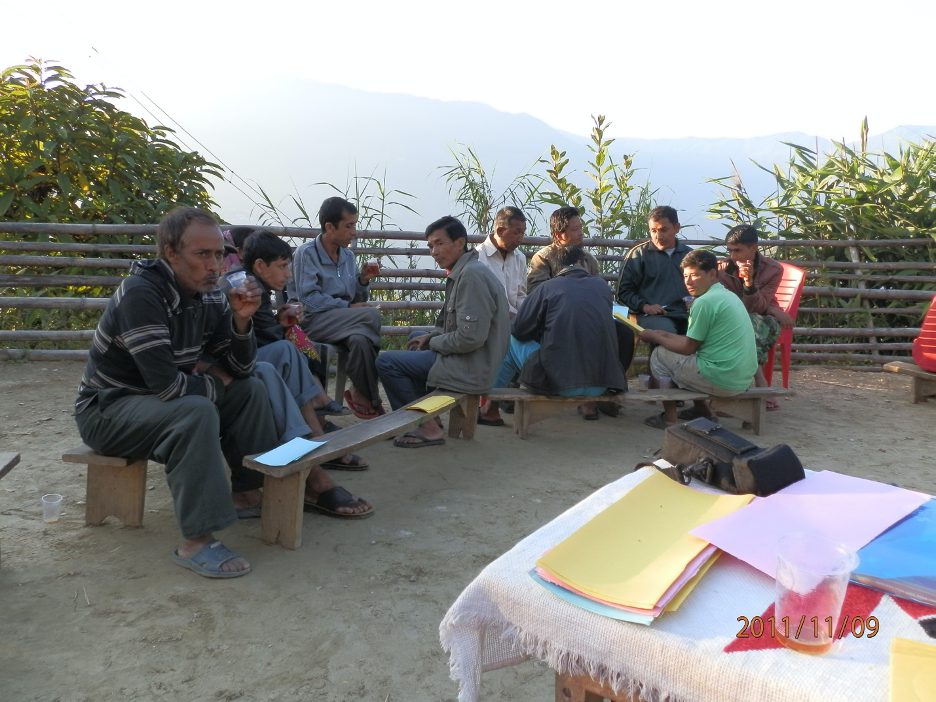
Community workshop on child mental health
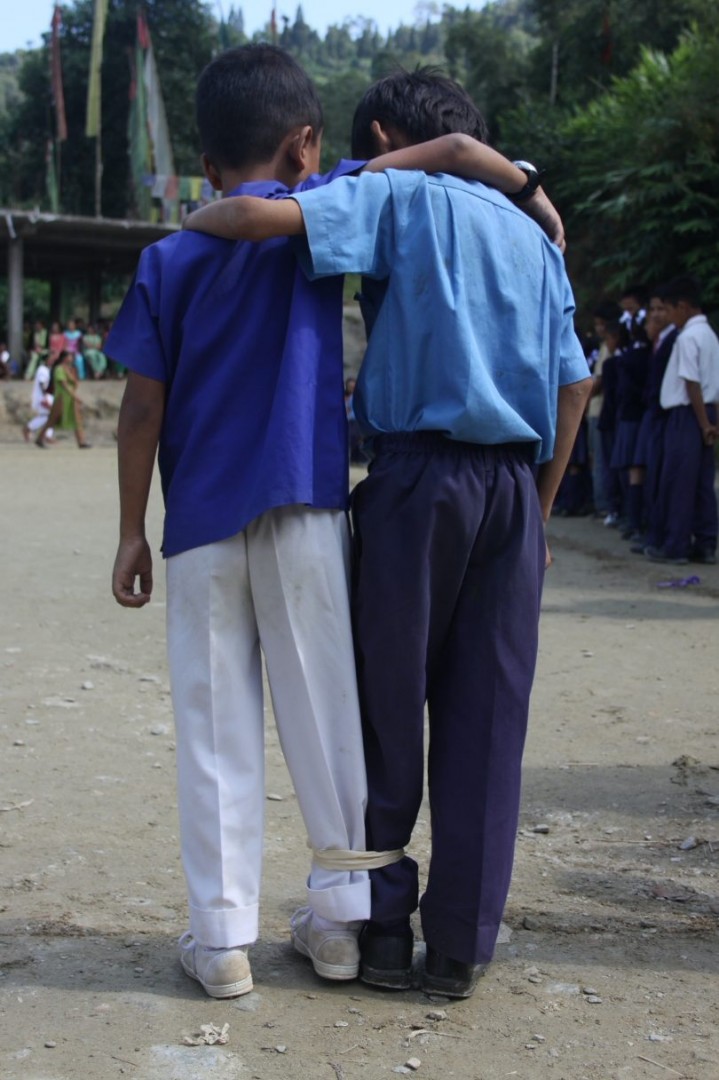
Enhancing social skills and self esteem is a key to improving children’s mental wellbeing and functioning
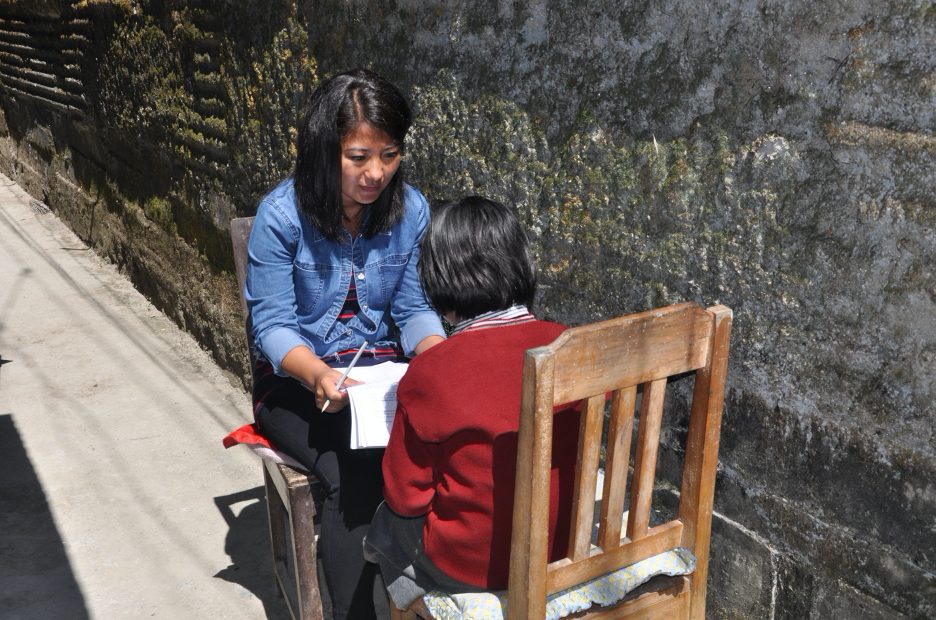
One on one counselling interaction
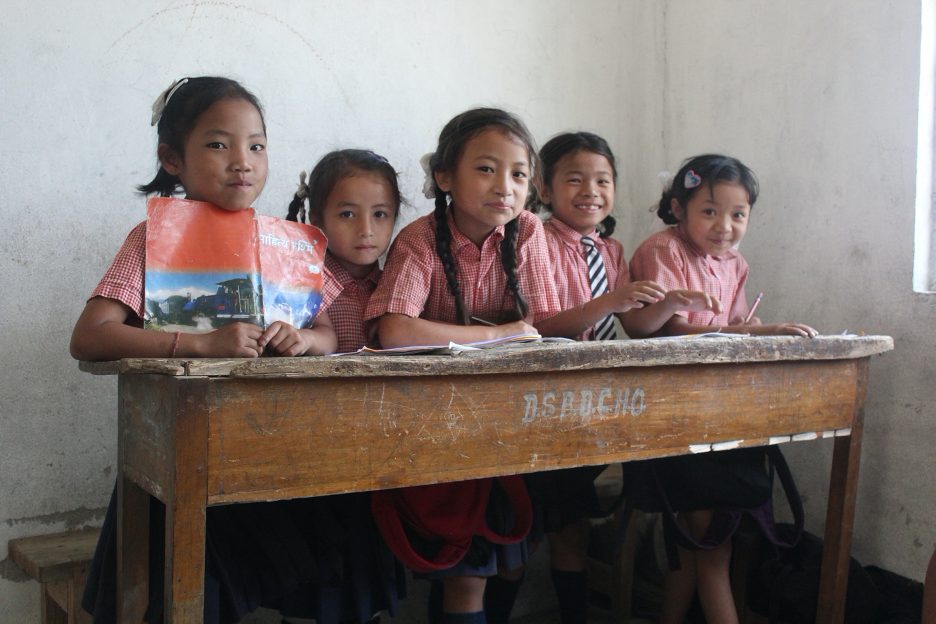
Young female students in rural Darjeeling

